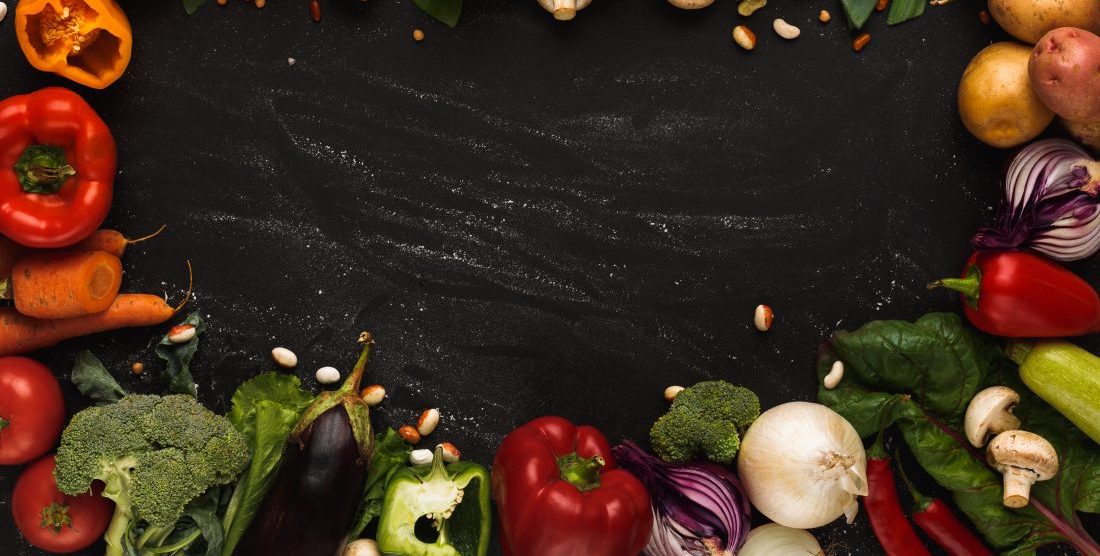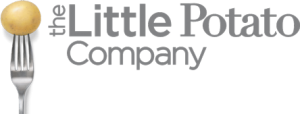Diet Roundup: Your Guide to 10 of the Most Popular Diets

When you hear the word diet, do you think of Atkins and South Beach? Or, do you keep a running log of all the calories you consume? Are you on a diet? Or do you have a diet? Is your diet just what describes your food choices? Or is your diet a temporary fix to slim down so that you can fit back into your jeans from high school?
Regardless of how you define “diet,” it’s very likely that you are one of the many people today who are becoming increasingly aware of the relationship between the quality of our food and the quality of our health. But when it comes to what we should be eating day-in and day-out, things tend to get a bit more complicated. And, as more and more nutrition education continues to hit the mainstream, the increased awareness of how our food affects our body, both immediately and in the long term, is also bringing attention to different food choices and dietary lifestyles.
Research on macronutrients (carbohydrates, proteins and fats) as well as micronutrients (specific vitamins and minerals) has been both revealing and confusing. Low-fat, high-fat, low carb, plant-based, they’re all diets that you’ve likely heard of and possibly followed. This information has probably also at some point left you confused as to what constitutes ‘healthy’ eating[1].
A ‘Healthy’ Diet Defined

Perhaps you’re on a quest to eat ‘better’ and can identify with feeling overwhelmed and confused by just what ‘better’ means. Maybe you have recently adopted a new eating plan or are currently adhering to a specific diet or perhaps you’ve been considering shifting into one but are not sure where to start.
Today, a diet that focuses on minimally processed foods and is rich in fruits and vegetables, which also incorporates unsaturated fats, whole grains, and proteins is generally considered a ‘healthy diet.’[2] In fact, the government has even created a standard set of dietary guidelines around this premise in an effort to help people prevent chronic disease typically associated with poor food choices.[3] But the truth is that it’s not always that black and white.
In fact, the choices we make around food are almost always driven by a number of factors. Dairy-free or gluten-free ‘diets’ are typically driven by food allergies and intolerances and followed for the greater portion if not the entirety of one’s life (arguably these may not be a ‘diet’ but a necessarily restrictive dietary lifestyle). Many who subscribe to a vegan or vegetarian diet are motivated not only (or at all) for health reasons but for ethical considerations as well. And those that follow more rigid ‘diets’ such as Whole30, DASH or Ketogenic, typically stick to them for a limited amount of time in order to hit specific weight goals or to overcome specific health concerns (such as elevated blood sugar or high BMI).
Beyond that, each year a slew of new fad diet plans pop up promising smaller waists, greater energy, and sharper minds. Sometimes these diets work, and other times they leave us feeling defeated and crawling back to our old habits. One thing is for sure, though, and that is that nearly all of them end up being temporary and unsustainable in the long run.
That said, there are some diets out there that have been around for many, many years. And for good reason. These diets really have become overarching shifts in one’s lifestyle approach, and those that follow each tend to have great success towards their specific goals. Perhaps you can relate?
We’ve rounded up 10 diet plans that we consider to be both the most popular out there today and ones you should not necessarily feel compelled to follow but might have a desire to learn more about. Here’s what you need to know about each:
The Diets
-
Vegetarian
A vegetarian diet is plant-based and includes fruits, vegetables (like Little Potatoes), dried beans and peas, grains, seeds and nuts, dairy and eggs. The diet omits meat, poultry and typically fish unless you classify yourself as ‘pescetarian’ in which case you do incorporate fish into your eating plan. This way of eating is considered to be very healthy due to the wide variety of nutrients you intake daily. And while it is possible to obtain all essential nutrients from a vegetarian diet, careful attention should be given to iron, B12, calcium, and protein, with supplementation if necessary[4]. Beyond ethical reasons, what’s the driving factor for many adhering to a plant-based diet? Longevity. Studies are showing us that vegetarians have lower incidence of chronic health diseases such as heart – disease and are living longer.
-
Vegan
Taking vegetarian diets one step further is veganism, or a diet exclusively plant-based, avoiding any animal products such as meat, dairy, eggs and even honey, often for ethical reasons. Beyond the literal food exclusions, vegan diets are usually classified as a lifestyle choice, with followers omitting these foods for health, environmental and / or ethical reasons and attempting to exclude additional forms of animal cruelty from their life such as through the clothes they choose to purchase. Beyond the health protection vegetarians benefit from, vegan diets seem to offer additional protection against obesity, type – 2 diabetes and hypertension.[5]If you’re new to the vegan diet we have lots of recipe inspiration for you to whet your appetite (and creativity).
-
Dairy-free
Lactose intolerance is defined as the body’s inability to break down lactose sugar due to low levels (or no levels) of lactase, a digestive enzyme. Symptoms of lactose intolerance may include gas, bloating, nausea and stomach pain and those who suffer willingly omit dairy from their diet for the rest of their life.[6] That said, we’re seeing a rise in followers of dairy-free diets who do not have the true allergy as people are starting to learn of other health complications such as belly bloat, headaches and congestion that may be linked to dairy intake. The best way to determine if dairy is not for you is through elimination. Start by omitting all dairy from your diet (this includes milk. Cheese, yogurt, butter, ice cream and many packaged foods) and then reintroduce after three weeks to see if you notice any changes in symptoms.
-
Gluten-free
Those who have celiac disease, (defined as a hypersensitivity and negative immune response in the small intestine to gluten, the protein in wheat), are required to follow a strict gluten-free diet. But like the rise in dairy-free diets, gluten-free diets have also swiftly gained momentum in the last 10 years. This is thanks to increased research which links the removal of gluten from the diet to reduced body fat, inflammation and insulin resistance.[7] Many health practitioners are implementing the diet for those who don’t necessarily have a true allergy to wheat protein, using the exclusion of wheat as a new dietary approach to prevent the development of obesity and metabolic disorders. Gluten-free diets can feel overwhelming to follow as nearly all popular packaged foods today contain some form of wheat. The increased rise in “gluten-free” options doesn’t offer much hope either, as lots of these foods are highly processed and contain less than nutritionally stellar ingredients. If you are following a gluten-free diet, look for naturally gluten-free foods, like Little Potatoes, to help satisfy your nutritional needs and cravings.
-
Ketogenic Diet
The ketogenic diet or ‘keto’ diet takes low-carb one step further, making it a diet so low in carbohydrates that the only contribute 5 – 10% of your total calories. The foods you do eat are primarily high in fat and moderate in levels of protein. And while a diet very high in fat in the past may have caused quite a bit of controversy (do you remember the low-fat, fat-free craze?) it now proves to be very beneficial for our health and longevity, and a nutrient our body really needs to thrive.[8]
The goal of the diet is to put the body in a state of ketosis which means your body continues to rely on fat stores (and breaking down those fat stores) for energy and when you do give it food you are careful not to spike your blood sugar through carbohydrate-rich options. Those who follow a keto diet are typically driven to it for weight loss goals. The basic foods that make the cut? Healthy fats from raw nuts, avocado, coconut and olive oil, grass-fed butter and ghee and lean protein from (preferably grass-fed) beef, fish, organic chicken, and egg and vegetables.
-
DASH diet
The DASH (Dietary Approach to Stop Hypertension) diet was created with the goal to lower high blood pressure, and prevent and control hypertension through foods and its repeated success is why it has been around for decades and continues to be followed. The diet focus is on foods high in key nutrients including potassium, calcium, fibre and protein and low in sodium (not to toot our horn, but Little Potatoes check all of these boxes!). Specifically, the diet requires you to lower your sodium intake to no more than 2,300 milligrams a day. Recommended foods include vegetables, fruits, whole grains, lean protein, legumes and beans, and low-fat dairy. Foods that are off limits are those high in sodium and fat, processed foods and sugar-sweetened foods and beverages and red meat.[9]
-
Mediterranean Diet
Similar to DASH, the Mediterranean diet has also been around for many years thanks to its success and is meant to be followed as a long-term, sustainable lifestyle shift in eating. It originated around 1960 from Europe and has slowly gained popularity throughout the world. There is lots of research[10] touting its health benefits, which include decreasing development the of heart disease, protecting against Alzheimer’s, helping protect against bone loss and overall longevity and wellness. So what should you eat? The focus is on healthy ‘good’ fats from fish and olive oil, and antioxidant-rich foods including vegetables, fruits (and even wine). With this diet being a lifestyle shift without strict restriction, many find it easy and enjoyable to follow while reaping the health benefits.
-
Paleo
The paleo diet emulates the eating of paleolithic people taking a literal ‘‘hunter-gatherer’ approach to food choices. The idea is that if we eat like our ancestors did thousands of years ago, we can see healthy benefits such as weight loss and reduced incidence of disease. It is much more restrictive than DASH or Mediterranean (making it a diet most people only follow for a limited time) restricting sugar, dairy, legumes, grains and corn as well and any processed food. Your food choices focus around what you would be able to ‘hunt’ or ‘gather’ and therefore rely entirely on whole foods and typically seasonally with lots of vegetables, high-quality meats, fruit and healthy fats. While supporting research on specific health benefits is limited, a diet that shifts your attention to real foods versus processed is always a positive one.[11]
-
80 / 20 Diet
This diet is fairly straightforward. 80% of the time you’re filling your plate with nutrient-rich foods including fruits, vegetables, proteins, legumes and healthy fats. The remaining 20% is your wiggle room to enjoy the occasional treat and less ‘healthy’ options such as refined breads, pasta, sweets, etc. Those that follow and/or promote this way of eating find it to be a diet that’s approachable for the long-term. It’s not restrictive and can be a way to promote healthier choices through the majority of the day but still allow yourself to indulge, all while keeping your weight in check.[12]
-
Whole30
Possibly the newest to the list, this diet has quickly gained momentum and popularity as a dietary ‘reset.’ The goal is to help reshape eating habits, choices and your overall relationship with food as well as helps you to recognize any food intolerances, digestive ailments, skin issues, allergies or chronic pain that may be caused or exacerbated by foods you’re frequently eating. You do this starting with a strict elimination of sugar, dairy, grains, legumes for 30 days followed by gradual reintroduction. While it’s a diet you’re unlikely to stick to forever, or even longer than 30 days, it helps to hit the reset button and steer you towards food choices that are best for your body.[13]
The Common Threads
Yes, these diets differ in approach and their specific food rules can be varied. Some common themes in many of them include limited sugar and limited or no processed foods. And, perhaps most importantly, the one common thread in all of them is to build your food choices around an abundance of plants.
Whether you’re following a lifestyle diet such as dairy-free or Mediterranean or something more rigid and temporary such as the Whole30, eating a diet that centres around plants can boost your health and promote longevity. No one, regardless of the diet you follow, will argue with you that you should eat less plant-based foods, and that includes Little Potatoes. Yes, even on a lower carb or Whole30 diet, Little Potatoes in the right serving still fit the bill and are encouraged.
Our Little potatoes are a powerful plant-based source of iron, Vitamin C and have 3 grams of fibre per serving. Since they are also naturally gluten-free, they can fit into any lifestyle. Not to mention, there are a million different and delicious ways to prepare Little Potatoes, which means you can keep them in the regular rotation without getting bored!
Join in our social media conversation through Facebook and Instagram and let us know what diet you’ve found best fits your lifestyle! And if you have questions, comments don’t hesitate to get in touch: info@littlepotatoes.com.
Sources:
[1] https://www.ncbi.nlm.nih.gov/pmc/articles/PMC3471136/
[2] https://www.ncbi.nlm.nih.gov/pmc/articles/PMC3471136/
[3] https://www.choosemyplate.gov/dietary-guidelines
[4] https://medlineplus.gov/vegetariandiet.html
[5] https://www.ncbi.nlm.nih.gov/pmc/articles/PMC4073139/
[6] https://www.niddk.nih.gov/health-information/digestive-diseases/lactose-intolerance
[7] https://www.ncbi.nlm.nih.gov/pubmed/23253599
[8] https://www.sciencedaily.com/releases/2016/07/160705120026.htm
[9] http://dashdiet.org/what_is_the_dash_diet.asp
[10] https://www.ncbi.nlm.nih.gov/pmc/articles/PMC4518218/
https://www.nih.gov/news-events/nih-research-matters/mediterranean-diet-may-slow-development-alzheimers-disease
https://www.ncbi.nlm.nih.gov/pmc/articles/PMC3684452/
[11] https://www.eatright.org/health/weight-loss/fad-diets/should-we-eat-like-our-caveman-ancestors
[12] https://www.livestrong.com/article/540174-the-80-20-diet-rule/
[13] https://whole30.com/whole30-program-rules/

Lynsey Walker, Registered Holistic Nutritionist
Lynsey Walker is the Founder of Pineapple Collective— an education and content strategy company helping natural health and wellness brands tell their story. Her personal work has been featured in Chatelaine, The Huffington Post, Fitness Magazine, The Kitchn, Delish, MSN.com, Tuja Wellness and Buzzfeed.
When it comes to Little potatoes:
…Did you like what you read?
